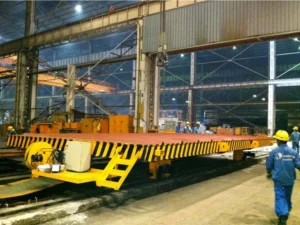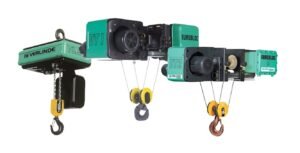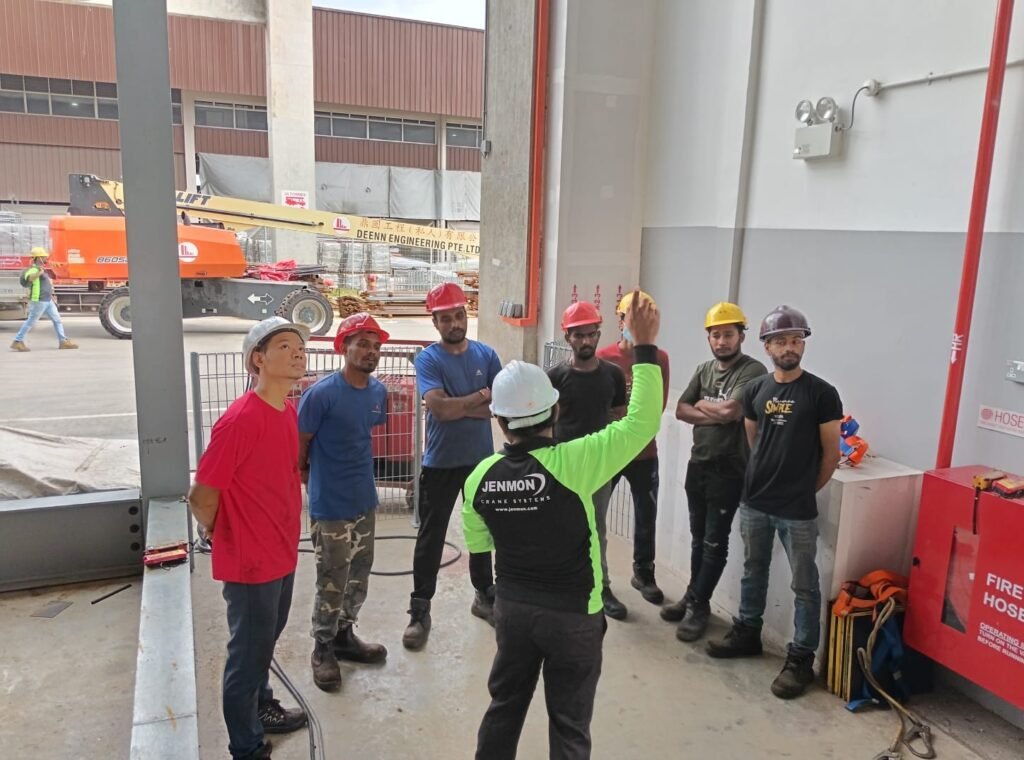Jenmon | Blogs
How Often Should Your Operators Take Crane Safety Training? A Guide for Site Managers
Imagine one of your crane operators carrying a heavy weight and skipping one of the most fundamental precautionary measures. Even a minor mistake would endanger lives and cause property damage. This is why it is important to conduct routine crane safety training. The high-traffic environment of the workplace evolves quickly: equipment gets newer, schedules become more stringent, and sites become varied. The lifting processes are dangerous without prior preparation.
Regular training keeps everyone alert and safe on site. It is your duty as a site manager to ensure that your team is current and comfortable. It’s always better to prevent crane accidents than to deal with the consequences.
Understanding the Basics of Crane Operation Safety
The safety in a crane site begins with knowledge of the correct operation of the equipment. Lifting is not the only thing to be concerned with when it comes to crane operation; there are limits, signals, and terrain to be acquainted with, too. Regardless of the type of crane, mobile, overhead, or tower crane, each has its safety issues. Misuse or poor use of the hoist may cause hazardous results. A safe site implies the awareness of safe crane operation in all industrial environments. Effective training helps you keep your team attentive, makes them do their jobs by the book, and ensures that employee safety is always the first priority in all crane activities.
How Often Should Operators Attend Crane Safety Training?
Ongoing training is vital in ensuring every crane operator stays confident and compliant at all times. Singapore’s safety regulations recommend refresher training courses based on the level of job risk, site activity, and the type of crane operation involved. Some operators may need it more often than others. Factors like job complexity, site incidents, or updates in procedures affect training schedules. A valid certificate ensures legal compliance and reduces the risk of errors. Let’s break down how often operators should attend crane safety training.
Annual: Ideal for High-Risk Industries or Complex Crane Use
If your team handles complex jobs or lifts daily, yearly training is your best bet. Sites like shipyards or precast yards involve high-risk lifting operations. Frequent assessment helps identify knowledge gaps. Training every year keeps safety fresh and workers ready. Don’t wait for accidents—annual refreshers help you maintain safe lifting across every project.
Also, staying updated prevents delays and protects equipment. For experienced crane operators, this is about sharpening skills, not just ticking a box. Attendance should be scheduled, not a reaction.
Biannual: Common for Low-Risk or Low-Frequency Users
If your operators use cranes occasionally, once every two years might be enough. But don’t forget—crane safety training still matters, even in low-risk roles. This schedule suits warehouses or smaller facilities with basic lifts. Biannual training courses are good for reviewing core safety steps, understanding updates, and staying familiar with safe crane operation. Certification remains valid longer, but knowledge can fade without use. Keep a log of attendance, and don’t wait until issues arise. Even part-time users should feel confident handling equipment safely.
Ad-hoc: After Incidents, Near Misses, or Changes in Job Site Conditions
Accidents or close calls are your red flag. If an incident happens, training should follow immediately. It’s also smart to retrain when your site brings in new cranes, changes layout, or updates lifting tools. That includes overhead cranes, mobile cranes, or digital control systems. Unfamiliar settings mean a higher risk. Operators need a refresh to ensure safe operation in the new setup. Ad-hoc training acts as a safety reset and shows your team you take their safety seriously. It’s a fast, effective way to boost confidence and reduce risk.
Signs It’s Time to Refresh Your Operators’ Knowledge
You’ll know it’s time to schedule a crane operator course when workers hesitate before a lift or ask questions they should already know. Even experienced staff lose confidence when new tools or overhead cranes appear. An expiring certificate is another key sign. Training is not only available to beginners but also to those who seek to remain sharp. If you notice more errors or if safety checks are not being entirely performed, book a course soon. Make your team safe, competent, and adaptable. It is all about being one step ahead rather than complying with regulations.
What a Crane Safety Training Course Should Cover
A proper training course should teach both theory and practical. At its core, the course covers key safety rules, machine functions, and hands-on lifting procedures. Every participant should learn how to handle real job situations confidently. Topics should also include routine maintenance, emergency response, and risk assessment. The goal is to enable workers to lift safely, spot dangers early, and make fast decisions. A strong overview helps each learner walk away with fundamental skills and clear knowledge. That’s how you build a confident, capable crew.
Why Jenmon Is the Right Crane Safety Training Provider
At Jenmon, we believe crane safety shouldn’t be complicated. We’re a one-stop provider offering training courses for workers across industries—from construction to pharmaceuticals. We aim to achieve only one thing: to enhance efficiency and minimise the dangers of cranes in use.
Starting or upskilling? We have the right course. The pace of each workshop falls in line with that of your team to make every worker feel guided. Whether it is the basic skills of lifting or the extended abilities of troubleshooting, our training courses can assist your team in gaining the confidence they require to work smarter and safer at site.
Final Thoughts: Build a Safer, More Efficient Team
Remaining compliant is important, but creating a team that feels secure and competent is more important. Frequent crane safety training results in a trusting atmosphere, fewer accidents, and an easier job for everybody. As a site manager, you have the responsibility to verify the skills of the crew and ensure no loss of track concerning the training.
Don’t let outdated knowledge put your team at risk. Contact Jenmon today, and let’s tailor a training course to suit your site’s needs. Together, we’ll help your crew lift safely, work better, and stay ahead.




